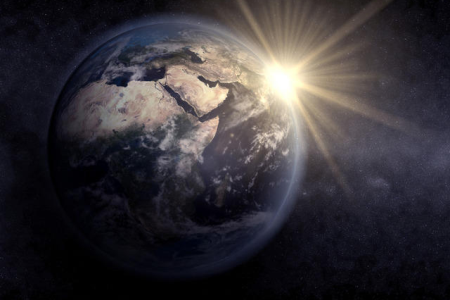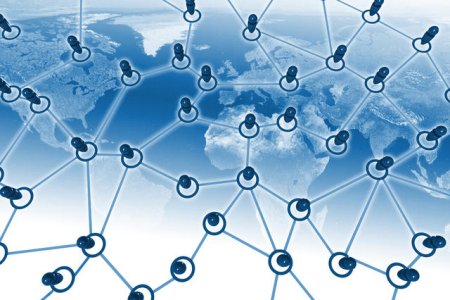Why Everything Is Literally All About Giving & Receiving
As the Wisdom of Kabbalah explains, in the ancient Mesopotamia, after studying the world around himself, Abraham discovered that reality consists of two desires. One desire is to give and the other is to receive. He found that everything that has ever existed, that exists now, and that will exist is an outcome of the interaction between these two forces. When the desires work in harmony, life flows peacefully along its course. When they collide, however, we must deal with the fallout—calamities and crises of great magnitude.
Through these discoveries, Abraham understood how the universe and life had started, and how they evolve. Our universe was born approximately fourteen billion years ago, when a massive, never-again-repeated burst of energy exploded out of a minuscule point. Astronomers call it “the Big Bang.” Just as a seed and an egg join to form an embryo at the moment of conception, the universe was “conceived” when the desire to give and the desire to receive were first joined together in the Big Bang. For this reason, all that exists in our universe is a manifestation of the joining of the two forces.
Just as a cell in an embryo begins to divide and create the flesh of the newborn immediately after conception, the desire to give and the desire to receive began to form the matter of our universe immediately after the Big Bang. Then, through a process that spanned billions of years, and that to an extent continues today, gases alternately expanded and contracted, galaxies were created, and stars were formed within them. Every expansion of gas was a consequence of the desire to give, which expands and creates, and every contraction was the result of the desire to receive, which absorbs and contracts.
Expansion and contraction form the endless ebb and flow of life, propelled at one moment by the desire to give, and at the next moment by the desire to receive. Whether it is galaxies, suns, and planets merging to form our universe, or cells, tissue, and organs combining to form a human being, this interplay of desires is at the heart of creation.
As with the stars, Planet Earth evolved by expansion and contraction through the interaction of desires. When Earth was first formed, its surface reflected the flow of expansion and the ebb of contraction. Every time the desire to give prevailed, Earth’s sweltering interior would burst into rivers of melted lava. And every time the receiving force prevailed, the lava would cool and form new swaths of land. Eventually, a strong enough crust was formed over the Earth to allow for the emergence of life as we know it.
If we search deep enough, we will find the same two forces—giving and receiving—within every being ever created, weaving their magnificent garment of life. In the weaving process, the desire to give first creates matter, as with the Big Bang or a newborn baby, and the desire to receive gives the matter shape, as with the stars and the differentiating cells in organisms.
Did You Know Humanity Is the Result of Billions of Years of Cooperation?
The story does not end with the creation of the universe. When a baby is born, it cannot control its hands or legs, which seem to move about erratically. However, there is tremendous importance in these seemingly erratic movements: after many repetitions, the baby gradually learns which movements get results and which do not. Unless the baby tries, it will not learn how to turn over, crawl, and eventually walk. In a baby, the life force (the desire to give) creates movement. But it is the desire to receive that gives that force direction and determines which expressions of the desire to give (movements) should stay and which should not.
The same principle can be applied to Earth’s early childhood. As the earth was cooling, particles driven by the desire to give moved randomly about. The desire to receive caused these particles to contract and form clusters, and only the most stable of these groups survived, forming atoms.
Continue reading “From The Big Bang To Now: What Humanity Needs Most Today”





